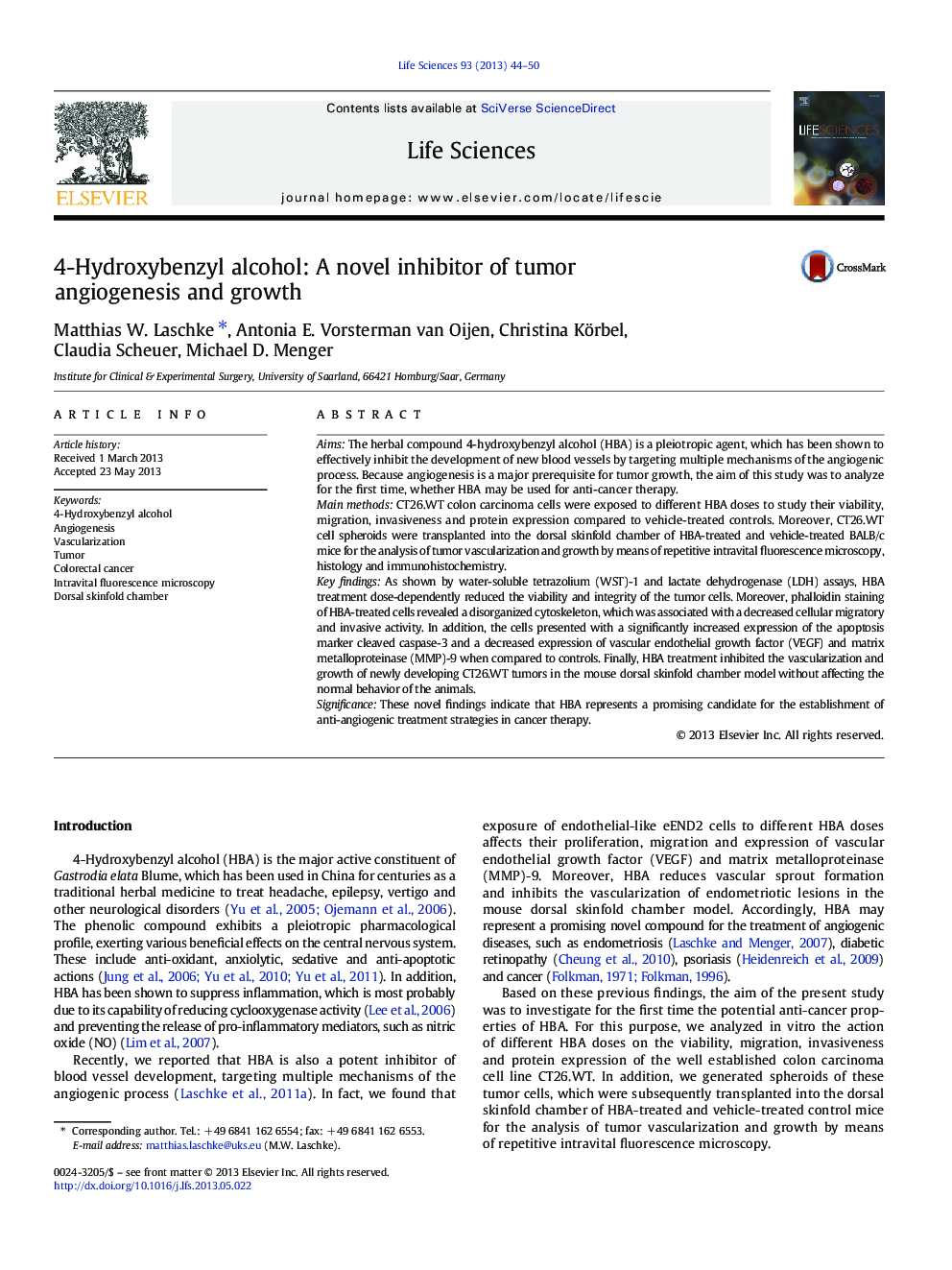| Article ID | Journal | Published Year | Pages | File Type |
|---|---|---|---|---|
| 2551448 | Life Sciences | 2013 | 7 Pages |
AimsThe herbal compound 4-hydroxybenzyl alcohol (HBA) is a pleiotropic agent, which has been shown to effectively inhibit the development of new blood vessels by targeting multiple mechanisms of the angiogenic process. Because angiogenesis is a major prerequisite for tumor growth, the aim of this study was to analyze for the first time, whether HBA may be used for anti-cancer therapy.Main methodsCT26.WT colon carcinoma cells were exposed to different HBA doses to study their viability, migration, invasiveness and protein expression compared to vehicle-treated controls. Moreover, CT26.WT cell spheroids were transplanted into the dorsal skinfold chamber of HBA-treated and vehicle-treated BALB/c mice for the analysis of tumor vascularization and growth by means of repetitive intravital fluorescence microscopy, histology and immunohistochemistry.Key findingsAs shown by water-soluble tetrazolium (WST)-1 and lactate dehydrogenase (LDH) assays, HBA treatment dose-dependently reduced the viability and integrity of the tumor cells. Moreover, phalloidin staining of HBA-treated cells revealed a disorganized cytoskeleton, which was associated with a decreased cellular migratory and invasive activity. In addition, the cells presented with a significantly increased expression of the apoptosis marker cleaved caspase-3 and a decreased expression of vascular endothelial growth factor (VEGF) and matrix metalloproteinase (MMP)-9 when compared to controls. Finally, HBA treatment inhibited the vascularization and growth of newly developing CT26.WT tumors in the mouse dorsal skinfold chamber model without affecting the normal behavior of the animals.SignificanceThese novel findings indicate that HBA represents a promising candidate for the establishment of anti-angiogenic treatment strategies in cancer therapy.
